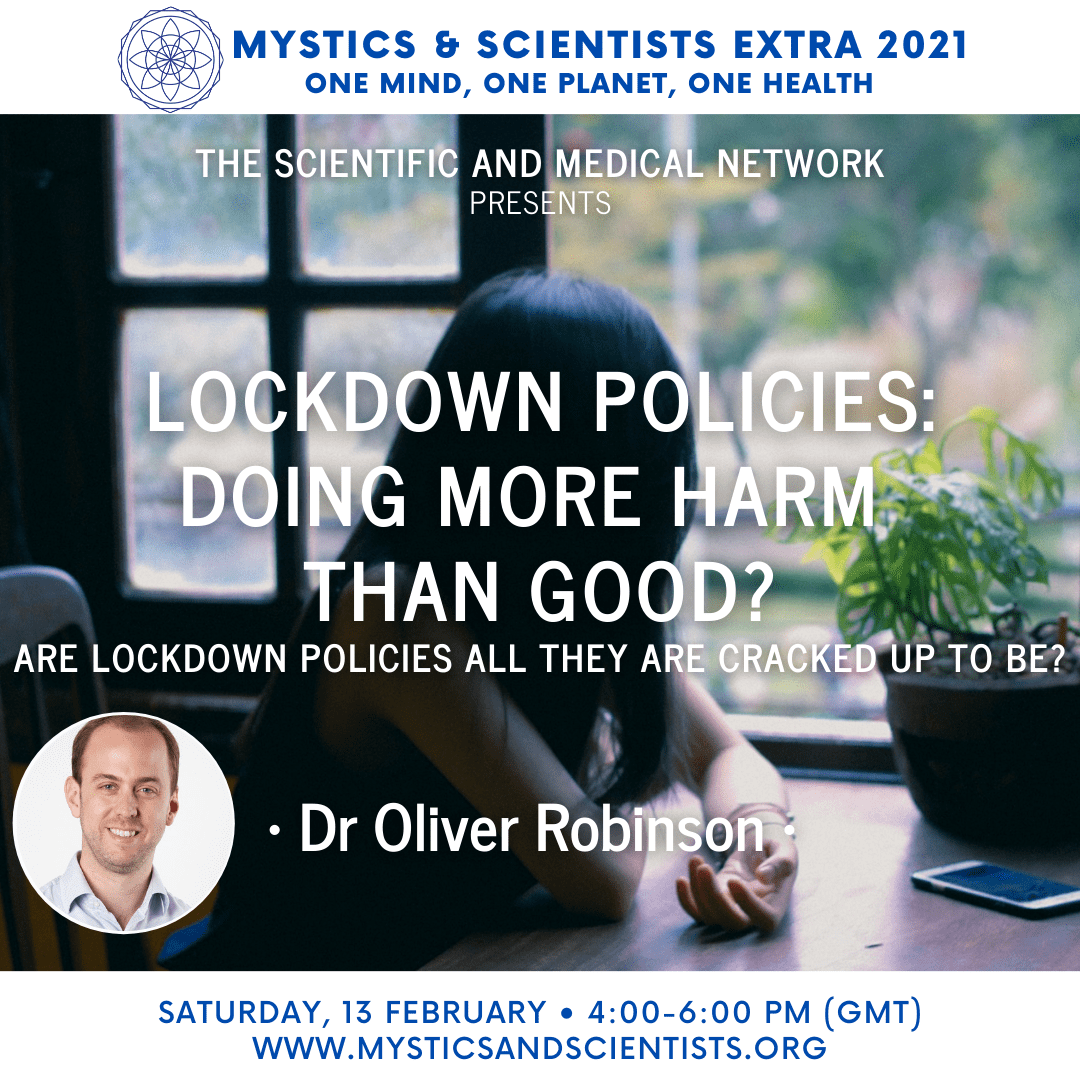
Dr Oliver Robinson – Lockdown Policies: Doing More Harm Than Good?
Are lockdown policies all they are cracked up to be?
Join psychologist Oliver Robinson for a look at the wider implications of lockdown policies on mental health and the central role of the immune system in a more systemic understanding of the crisis.

There is a growing body of research on the effects of lockdowns. Research comparing interventions across countries suggests that lockdowns do bring infection case growth rates down in the short-term, but no more than non-lockdown interventions such as limiting the size of gatherings and social distancing. Multiple research studies show no effect of lockdown measures on mortality rates, indeed some studies suggest that deploying lockdowns are related to increased mortality. Economic research suggests that hundreds of thousands of deaths will be attributable to the economic slump caused by prolonged lockdowns.
Psychological research has documented the negative effects of lockdowns on mental health. Crucially, there is also clear evidence that lockdowns lead to specific stressors that are known to have an immunosuppressant effect in relation to respiratory illness, thus may increase the likelihood of getting ill after being exposed to a coronavirus. I discuss whether the fact that governments have overlooked this last fact stems from them deploying a mechanistic and linear view of viral illness based almost solely on exposure to pathogens rather than one that is based also on the optimal functioning of the immune system supported by biological, psychological and social factors. I will also discuss issues that research should focus on in the future to shed further light on this matter.
•
About the speaker:

Speaker
-
 Oliver RobinsonProfessor in Psychology, Author
Oliver RobinsonProfessor in Psychology, AuthorDr Oliver Robinson is Associate Professor of Psychology at the University of Greenwich. His research focuses principally on the changes, transformations and transitions of adulthood, and he has written a textbook on this topic entitled Development through Adulthood: An Integrative Sourcebook. He also writes about the relationship between science, philosophy, history and spirituality, and has recently written a book on this topic entitled Paths Between Head and Heart: Exploring the Harmonies of Science and Spirituality. He co-organises an annual conference for the Scientific and Medical Network entitled Beyond the Brain. His interests include painting, meditation, dancing and spending time with his wife and young daughter.
